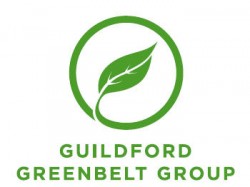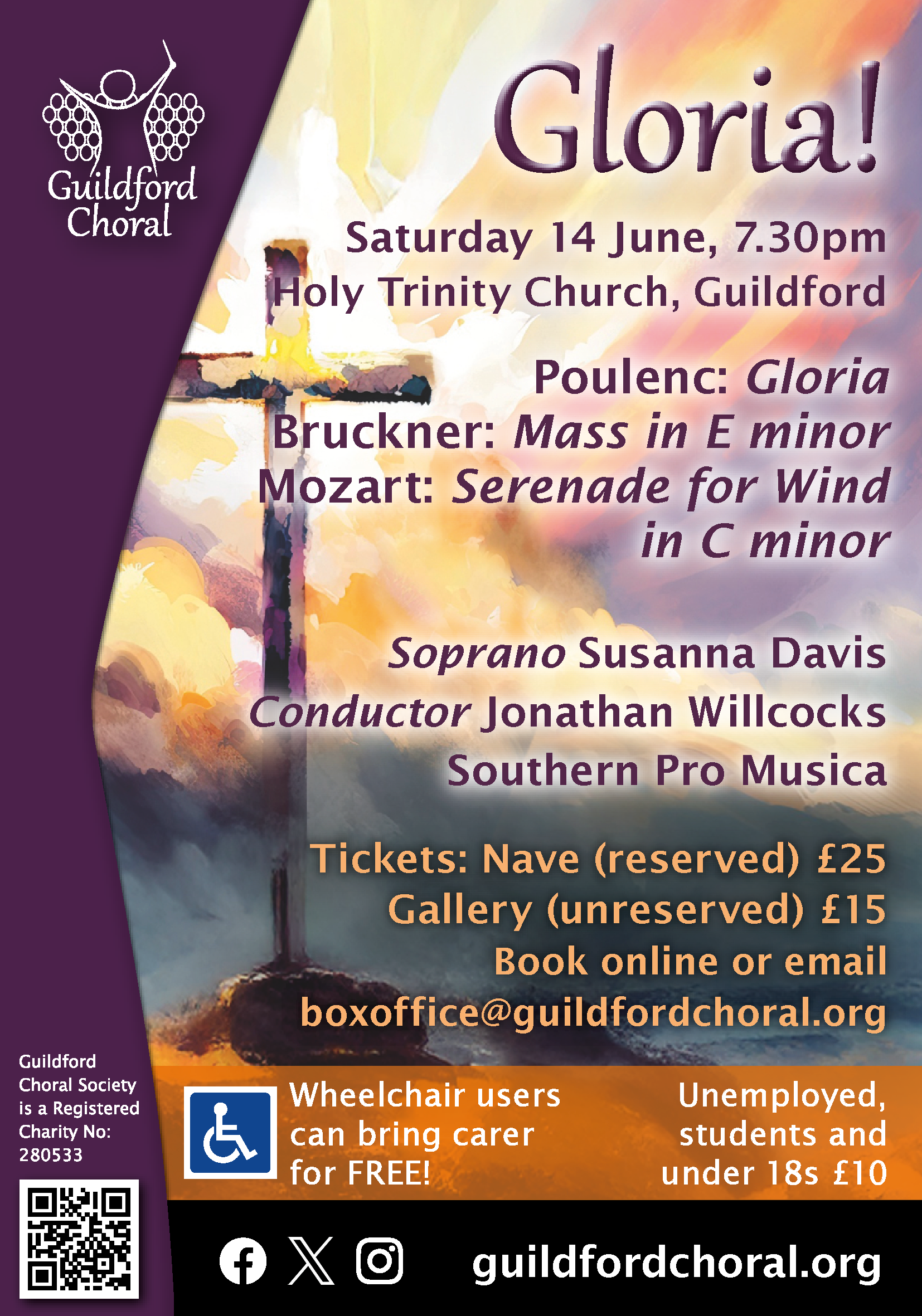 Abraham Lincoln
If given the truth, the people can be depended upon to meet any national crisis...
Abraham Lincoln
If given the truth, the people can be depended upon to meet any national crisis...
 Guildford news...
for Guildford people, brought to you by Guildford reporters - Guildford's own news service
Guildford news...
for Guildford people, brought to you by Guildford reporters - Guildford's own news service
Council Group Leader Interviews: Susan Parker – GGG
Published on: 3 May, 2015
Updated on: 4 May, 2015
The Guildford Dragon NEWS has invited a leader of each political party and a representative independent candidate, standing for election to Guildford Borough Council (GBC), to be interviewed. The response to each question is limited to up to 100 words.
Unlike the parliamentary candidate interviews there is no scoring of or comment on their responses.
Susan Parker is the leader of the Guildford Greenbelt Group (GGG) party that has 24 candidates standing in 15 of Guildford Borough’s 22 wards. The party was only recently registered with the Electoral Commission and has not stood before in any election. Susan is standing in Send ward.
Susan Parker, GGG Leader
 1. Most respondents to GBC’s own Local Plan public consultation said that they did not want developments to be built on the green belt. What “exceptional circumstances” can you imagine that would justify such development.
1. Most respondents to GBC’s own Local Plan public consultation said that they did not want developments to be built on the green belt. What “exceptional circumstances” can you imagine that would justify such development.
We know that housing need does not, legally, constitute such an exceptional circumstance. We’ve been battling to get this recognised by GBC. We’re still not sure that this has been understood by most councillors, who seem to ignore legal rulings and want to use greenbelt sites for most housing development.
There are very few exceptional circumstances where greenbelt incursion may be considered -maybe a doctor’s surgery or school extension. However, even in these cases there is usually an alternative. Switching sites, as proposed at Effingham where the existing school site is being proposed for housing, is not an exceptional circumstance.
 2. Do you agree with the government policy of capping Council Tax rises of 2% or more without a referendum?
2. Do you agree with the government policy of capping Council Tax rises of 2% or more without a referendum?
Yes. Council tax is a substantial cost to households and this provides a limit to the incurred costs, which could otherwise be substantial. It is important not to waste public money, and to recognise that the money spent by the council belongs to the public and is being spent on their behalf. Tax rises shouldn’t be above 2% without public consent – it isn’t council money. I must admit to some concerns about the way that the current council is both investing our money and funding investment.
3. Would your party be prepared to enter a coalition, or any kind of working agreement, with any other political party in the council, should the need arise?
Yes, we would be willing to entertain either a coalition or a working agreement either with councillors individually, or to consider a coalition other political parties. However, there are certain conditions: our “red line” would be inappropriate development on green fields and open spaces. We would want a new Local Plan undertaken rapidly, including a reappraisal of the housing number. We would want to agree much less aggressive parameters without the requirement for substantial “growth” within the borough. The new plan would need lower housing targets. With this understanding of the way forward, we’d have the basis for a coalition.
4. Can the council do anything to speed up development of brownfield sites and allow the construction of more houses on them?
Some of the brownfield land in the borough is owned by either Guildford Borough Council or Surrey County Council – (this was the subject of a freedom of information request that GBC did not answer fully, so we don’t know precise sites) so the land owned by the council can be made available very quickly. In general, planning permission can also be granted much more swiftly in relation to the development of brownfield land; at present it is very slow. There is other brownfield land in the borough than at Slyfield, but that is the only land that GBC focuses on.
5. Is there any way, other than social housing provision, to prioritise homes for local residents?
Prioritising homes for local residents can definitely be done in the context of social housing, either owned by the council – including tied homes for key workers – or owned by housing associations. It is harder to see how this can be done in the context of open market housing, and while it may be possible to place some forms of legal restrictions on the sale or resale of houses to non local residents or those without local connections, these are likely to be unpopular with developers and be resisted as damaging “viability”. So these might be hard to implement in practice.
6. With the rejection of Guildford Museum’s bid for Heritage Lottery funding how can a “History Hub” that befits Guildford be afforded?
I think that this is not something that we can afford to do as a council under the current economic circumstances. It may be appropriate to seek again to get such funding -but without it, the “History Hub” spending is a luxury. It may be possible to obtain commercial sponsorship or set up a charitable foundation to run this, and that is worth exploring. Conservation and protection of our historical centre is a priority, but that doesn’t necessarily include this development with public money. If sponsorship isn’t feasible this will have to wait until a more prosperous time.
7. Do you agree that the new proposed “hybrid” model of governance at the council will, if approved, improve things?
It’s an interim measure in response to GGG initiatives, and it’s designed to keep GGG quiet. It isn’t enough. GGG initiated the petition for a referendum to change the Executive system. At present an Executive of nine councillors, led by a Council Leader, make most of the key decisions. The quorum for that Executive is three. We want to change to a committee system where all 48 councillors play a part in governing the council. We can do this through the petition, triggering a referendum. The hybrid system, leaving the Executive in place, doesn’t give us enough democratic accountability.
8. Why can it be so hard to get people to stand as councillors. Is the low level of allowances a factor?
We managed to get 24 candidates to stand as councillors and we have only been a political group since November 2014.
Our group is generally very well qualified and highly educated, and we also think we have more practical business and commercial experience than many councillors from other parties. We are motivated by principle, and are not concerned with the level of allowances.
I think there is dislike of bureaucracy, and the way some council matters are conducted.
If elected, we’ll seek to ensure that decisions are taken efficiently and there is effective control over the operations of the council.
9. Do you agree that the Planning Inspectorate should have the final say on planning applications that go to appeal and the Local Plan?
The Planning Inspectorate does have a say, but not a final one. The Secretary of State has the power to call in decisions, although this is used in a fairly arbitrary fashion. We’ve been promised for some months that the Wisley Airfield proposal is about to be called in by the Secretary of State, but we are still waiting – yet more pie-crust promises. Anyway, the Planning Inspectorate is not God- it does and should follow the guidelines given by ministers, and also the law. The ultimate responsibility for planning rests with government, through legislation, and the courts, by determining decisions.
10. What is the most important issue facing Guildford Borough Council over the next four years.
Guildford Borough council must get a workable and legally sound Local Plan for the next 15 years.
While it is important to ensure that we have a well run council, most of that work is administered well by council officers.
However, it is elected councillors that will be making decisions now that will affect all our lives fundamentally over the next few years. It is vital that people recognise that only GGG councillors can guarantee a commitment to protect our quality of life, to preserve our countryside and to ensure that the town and countryside we value will be cherished.
What do you think of Susan Parker’s answers? Have your say by using the ‘Leave a Reply’ feature below.
Click here to see other GBC group leader interviews.
Click here to see Parliamentary candidate interviews.
Candidates from the following parties are standing in the Guildford Borough Council elections on May 7th: Conservative; Green Party; Guildford Greenbelt Group; Labour; Liberal Democrats; Peace Party; UKIP. There are also Independent candidates.
The Green Party declined the invitation to participate in these interviews.
Responses to Council Group Leader Interviews: Susan Parker – GGG
Leave a Comment Cancel reply
Please see our comments policy. All comments are moderated and may take time to appear. Full names, or at least initial and surname, must be given.
Click on cartoon for Dragon story: Public Asked for Views on SCC’s Proposal for Reduced Speed Limits






Recent Articles
- Guildford’s Green Day Shows Commitment to Net Zero by 2030 Remains
- Letter: We Should All Have a Say in How Our Local Government Is Reorganised
- Dragon Review: Madam Butterfly – Grange Park Opera
- Letter: PIP Claimants Under-claim
- Flashback: Council Report Accepts Juneja Case Has Caused ‘Reputational Damage’
- Revealed Survey Shows SCC’s Preferred Two-unitary Option Has Least Public Support
- Highways Bulletin: Junction 10 Closures and Making Strides for Walk to School Week
- New River Boats for Surrey Care Trust
- Body Found in Woodland Believed To Be Missing 69-year-old
- Guildford Choral Promises a Summer Evening Spectacular


Recent Comments
- Patrick Bray on SCC Intends to Back Public Survey Result and Shorten Summer School Holidays
- Patrick Bray on Work to Repair Cottage on Closed A281 Underway
- Jack Bayliss on Work to Repair Cottage on Closed A281 Underway
- Eric Gurney on Work to Repair Cottage on Closed A281 Underway
- Mark Coxhead on Major Disruption on the Railway During Hot Day in 1900
- Ian Stronge on Letter: Not All PIP Claimants Need It
Search in Site
Media Gallery
Dragon Interview: Local Artist Leaves Her Mark At One of England’s Most Historic Buildings
January 21, 2023 / No Comment / Read MoreDragon Interview: Lib Dem Planning Chair: ‘Current Policy Doesn’t Work for Local People’
January 19, 2023 / No Comment / Read MoreA3 Tunnel in Guildford ‘Necessary’ for New Homes, Says Guildford’s MP
January 10, 2023 / No Comment / Read More‘Madness’ for London Road Scheme to Go Ahead Against ‘Huge Opposition’, Says SCC Leader
January 6, 2023 / No Comment / Read MoreCouncillor’s Son Starts Campaign for More Consultation on North Street Plan
December 30, 2022 / No Comment / Read MoreCounty Council Climbs Down Over London Road Works – Further ‘Engagement’ Period Announced
December 14, 2022 / No Comment / Read MoreDragon Interview: GBC Reaction to the Government’s Expected Decision to Relax Housing Targets
December 7, 2022 / No Comment / Read MoreHow Can Our Town Centre Businesses Recover? Watch the Shop Front Debate
May 18, 2020 / No Comment / Read More






Bernard Parke
May 4, 2015 at 10:00 am
Council Tax Capped at 2%?
I have with me an election leaflet with the following heading:
“Conservative Guildford Borough Council have agreed a low Council Tax increase of just £2 a year for the average household.”
No comment.